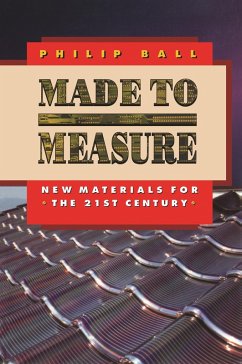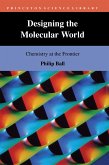Made to Measure introduces a general audience to one of today's most exciting areas of scientific research: materials science. Philip Ball describes how scientists are currently inventing thousands of new materials, ranging from synthetic skin, blood, and bone to substances that repair themselves and adapt to their environment, that swell and flex like muscles, that repel any ink or paint, and that capture and store the energy of the Sun. He shows how all this is being accomplished precisely because, for the first time in history, materials are being "made to measure": designed for particular applications, rather than discovered in nature or by haphazard experimentation. Now scientists literally put new materials together on the drawing board in the same way that a blueprint is specified for a house or an electronic circuit. But the designers are working not with skylights and alcoves, not with transistors and capacitors, but with molecules and atoms.
This book is written in the same engaging manner as Ball's popular book on chemistry, Designing the Molecular World, and it links insights from chemistry, biology, and physics with those from engineering as it outlines the various areas in which new materials will transform our lives in the twenty-first century. The chapters provide vignettes from a broad range of selected areas of materials science and can be read as separate essays. The subjects include photonic materials, materials for information storage, smart materials, biomaterials, biomedical materials, materials for clean energy, porous materials, diamond and hard materials, new polymers, and surfaces and interfaces.
This book is written in the same engaging manner as Ball's popular book on chemistry, Designing the Molecular World, and it links insights from chemistry, biology, and physics with those from engineering as it outlines the various areas in which new materials will transform our lives in the twenty-first century. The chapters provide vignettes from a broad range of selected areas of materials science and can be read as separate essays. The subjects include photonic materials, materials for information storage, smart materials, biomaterials, biomedical materials, materials for clean energy, porous materials, diamond and hard materials, new polymers, and surfaces and interfaces.
Dieser Download kann aus rechtlichen Gründen nur mit Rechnungsadresse in A, D ausgeliefert werden.









